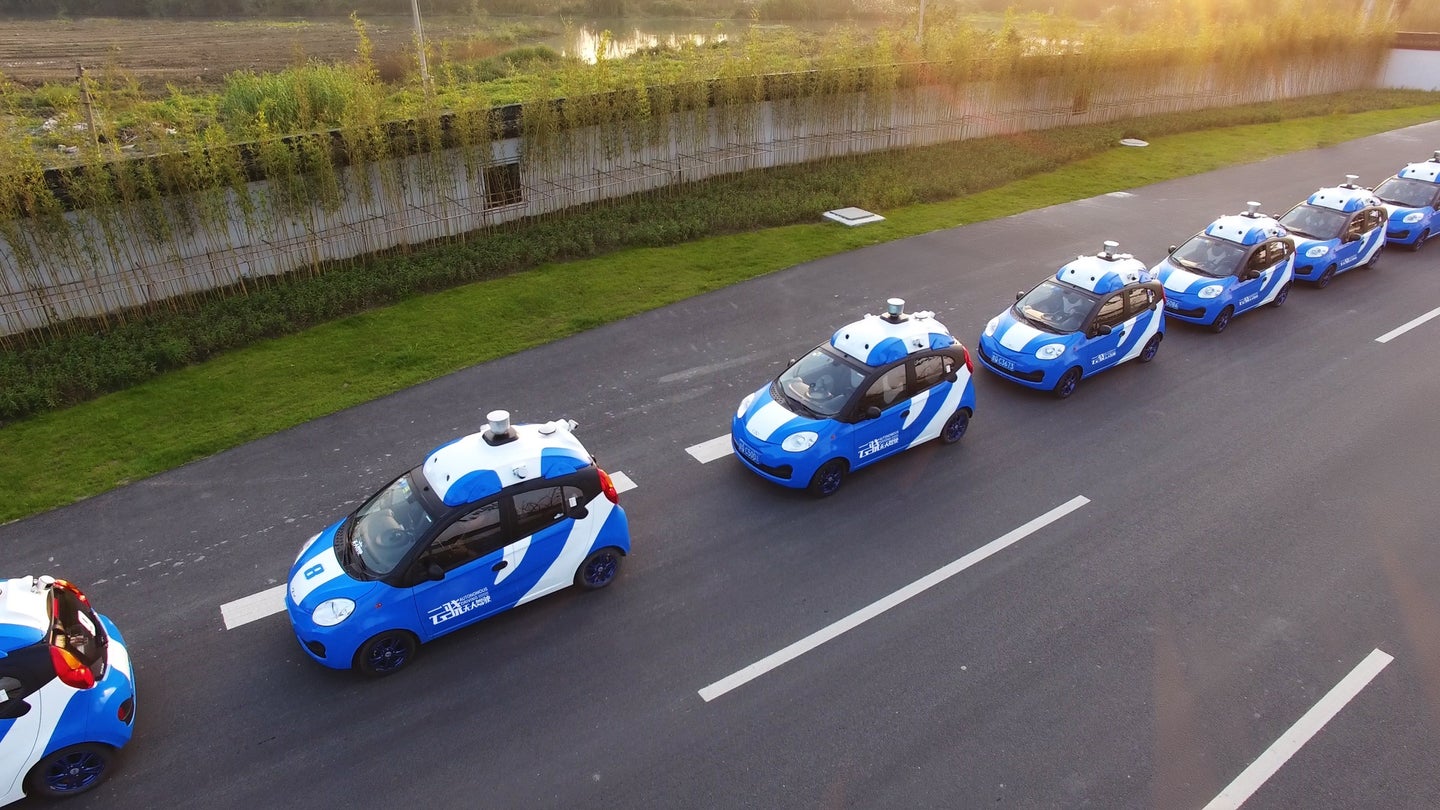Chinese Consumers Are Twice as Trusting Of Autonomous Cars as Americans, Study Says
Germans are about as suspicious of self-driving cars as Americans.

If automakers and tech companies start producing large numbers of self-driving cars, they may want to deploy them in China first. A new study from German testing and certification company TÜV Rheinland found that Chinese consumers are twice as trusting of autonomous vehicles as Americans and Germans.
Of more than 1,000 licensed drivers surveyed, more than 63 percent of Chinese respondents said they believed autonomous cars would increase road safety, compared to just 34 percent of Americans and Germans surveyed. About half of American and German respondents believed autonomous cars with no manual controls could decrease road safety, while 24 percent of Chinese respondents held that view.
The study also looked at consumer perception of cybersecurity. In all three countries, respondents were concerned that the increased connectivity of self-driving cars would lead to data theft or car hacking. A full 76 percent of German respondents believed personal data could be stolen, as did 67 percent of American respondents and 63 percent of Chinese respondents.
Automakers can already harvest some data from cars, but Americans said they weren't well informed about this, with 55 percent saying they didn't know much about what data is collected, who can see it, and how it's protected. It was a similar story in Germany, where 52 percent of respondents admitted to being uninformed. But just 15 percent of Chinese respondents said they were uninformed about data policies.
To keep secure, most respondents (80 percent in China, 68 percent in the United States, 64 percent in Germany) said they would support over-the-air software updates. Roughly 60 percent of respondents in all three countries said they would switch automakers if a specific automaker's cars were successfully hacked.
While consumer trust is a well-known issue facing self-driving cars, the TÜV Rheinland study showed that cybersecurity is also a major concern for consumers. The availability of backup manual controls was listed as the biggest concern for American and German respondents, but Chinese respondents named the backup of personal data as their top priority. The results show that even when a population is willing to trust self-driving cars, automakers may still need to earn its trust in other areas.
